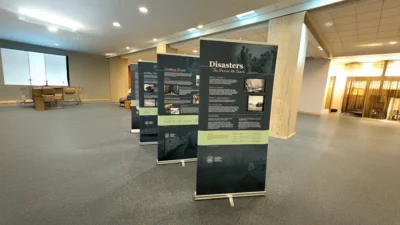Ozone pollution has been declining across the United States for years, but southeastern New Mexico is experiencing an increase. During a recent meeting of the legislative Water and Natural Resources Committee, researcher Detlev Helmig presented findings indicating that Loving, located in Eddy County, has seen rising ozone levels. Helmig noted that these levels exceed National Ambient Air Quality Standards and are accompanied by higher concentrations of other pollutants compared to monitoring sites in Colorado. Benzene levels were reported to be nine to eleven times higher than those at Colorado sites.
The U.S. Centers for Disease Control and Prevention warns that long-term exposure to benzene can harm bone marrow and reduce red blood cells, potentially leading to various health issues. Ground-level ozone pollution is known to exacerbate asthma and other lung conditions.
During the panel discussion, participants considered the health benefits of implementing setbacks for oil and gas operations near schools, homes, and other structures. Jozee Zuniga, an Eddy County resident and organizer for Youth United for Climate Crisis Action, advocated for such measures: “Currently, there are only 800 wells within a mile of schools,” she said. “We’re asking that the state prohibit all wells around schools and ask the new production to occur at least a mile from the schools.”
However, not all attendees agreed with this perspective. Michael Lumpkin from CTEH described health studies on oil and gas exposure as "inconsistent" and unreliable in proving causation between emissions and adverse health outcomes. He stated he would feel comfortable living near production facilities: "There’s an opportunity here now to leverage [the] best available science to inform the best setback distance policies for New Mexico."
Colin Cox from the Center for Biological Diversity countered with studies linking proximity to oil production with low birth weights and cancer hospitalizations: "They all show health risks from living too close to oil and gas production," he asserted.
This debate over setbacks is not new; it was also discussed last week when Legislative Finance Committee staff analyzed their fiscal impact. The analysis projected a potential loss of $800 million by 2035 due to proposed setbacks but did not account for existing health costs related to oil production.
Committee chairman Rep. Matthew McQueen criticized this analysis: “I hear from both sides we need more information about the impact,” he said. He emphasized considering public health costs alongside economic factors.
Greg Bloom from the State Land Office questioned whether different setback limits might alter fiscal impacts on the state economy. Last year saw State Land Commissioner Stephanie Garcia Richard impose a moratorium on new leases within one mile of schools.









